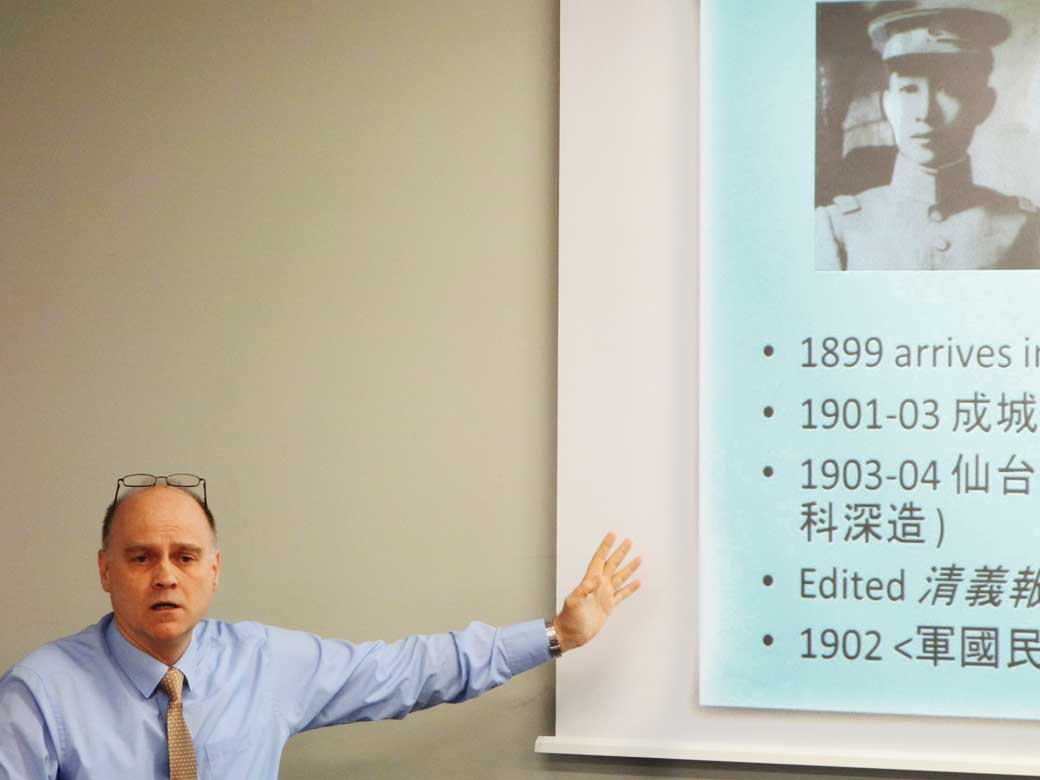WIAPS Seminar on the problem of Chinese Militarism by Professor Christopher R. Hughes
Tue, Apr 19, 2016On April 2016, Professor Christopher R. Hughes of the London School of Economics and Political Science (Head of International Relations Department) presented for the WIAPS Seminar hosted by the Waseda Institute of Asia-Pacific Studies (WIAPS).
Following introductory remarks by Professor Yamaoka and Professor Shinohara of the WIAPS, Professor Hughes began a presentation on “The Problem of Chinese Militarism.” The presentation discussed how social actors, both inside and outside of the military and the Chinese Communist Party, have acted to strengthen militarism – the appreciation of the military in Chinese society. In particular, Professor Hughes focused on several Chinese activists who studied at Japanese military academies and Japanese universities in the early 20th century. These individuals had great influence on the development of China’s military and state, from the early days of the Chinese Communist Party until the present day.
Using excerpts from school textbooks, Professor Hughes introduced actual examples of how National Defense Education (NDE) is helping create a tradition of China as a state that values its military. He also cited recent laws that demonstrate efforts to confirm and put more resources into teaching militaristic ideas and practices. These efforts, which seek to reinforce the legitimacy of the Chinese Communist Party and a hierarchical society, can be interpreted as a response to the threats posed by globalization and liberal individualism.
After the presentation Professor Hughes answered questions from the audience. Topics addressed included the role of Japan as a conduit for transmitting European militarism to China, the reluctance of present-day Chinese to acknowledge this link to Japan, and the importance of examining policy outcomes to determine the influence of militarism on China’s leadership. There was a lively intellectual exchange between Professor Hughes and the faculty and students of the Graduate School of Asia-Pacific Studies.














